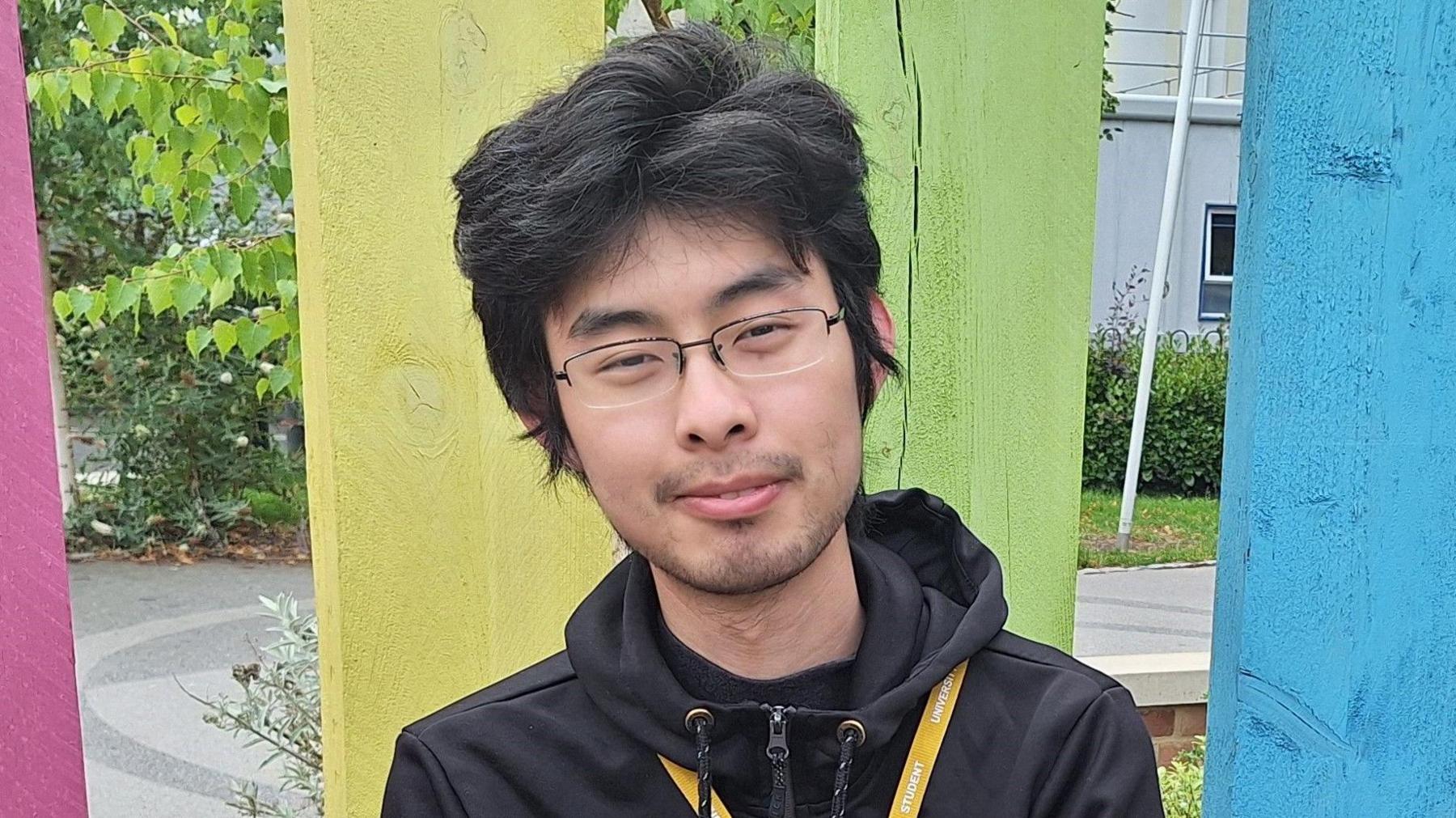'I hope MS trial can stall the loss of limb use'
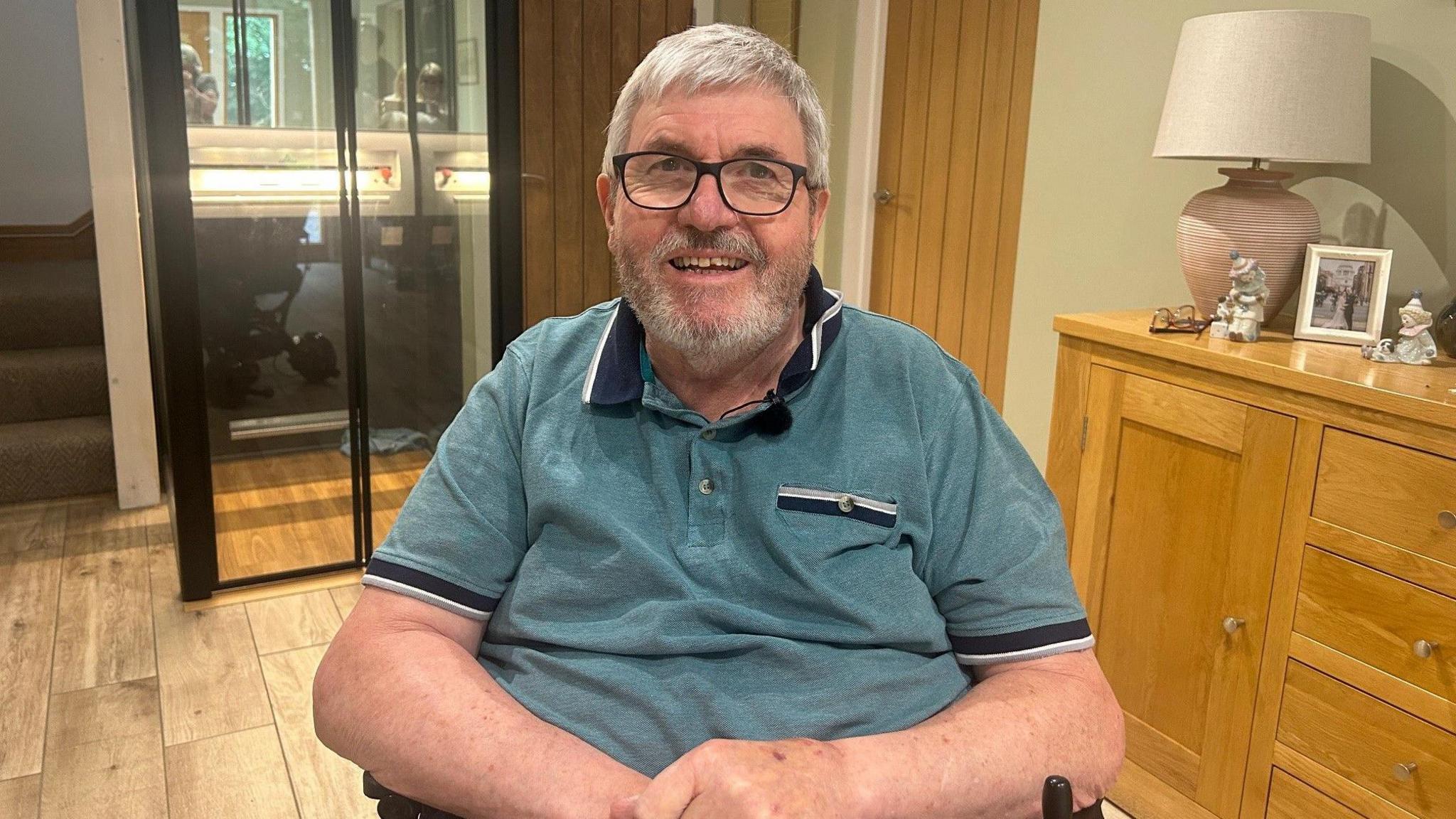
John Kendrick was diagnosed with Multiple Sclerosis (MS) when he was aged 53
- Published
Since John Kendrick was diagnosed with Multiple Sclerosis at 53 years old, his symptoms have become progressively worse and he is now in a wheelchair.
More than 20 years since his diagnosis, he has joined a clinical trial at Torbay and South Devon NHS Foundation Trust in the hope it will slow down or halt the loss of arm and hand function in people with advanced MS, external.
The study, which began in the UK in 2021, is being run at 22 sites and involves 205 people with advanced MS who are randomly assigned to take the drug cladribine or a placebo over 24 months.
"I'm worried about losing my legs and arms and being able to do things. So if it can stall it, I'd be very grateful," he said.
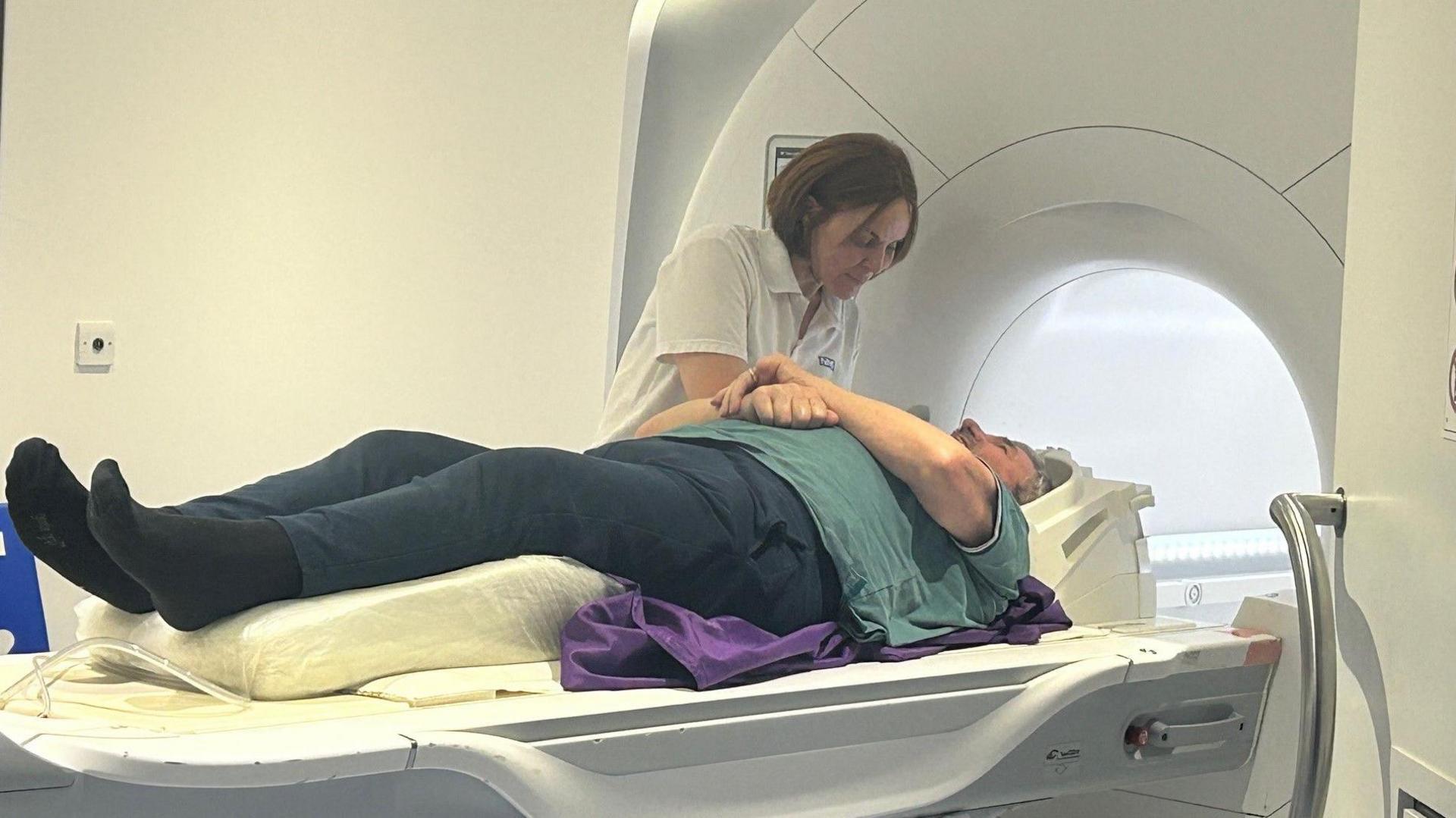
Mr Kendrick is part of the ChariotMS trial at Torbay and South Devon NHS Foundation Trust
Mr Kendrick, 75, of Sparkwell, Devon is part of the ChariotMS trial and said loss of leg and arm use was "the ultimate thing that happens with MS".
The trial participants, who all have advanced MS, cannot walk further than 20m (about 66ft) with two crutches, or are unable to walk at all, but still have some use of their arms and hands.
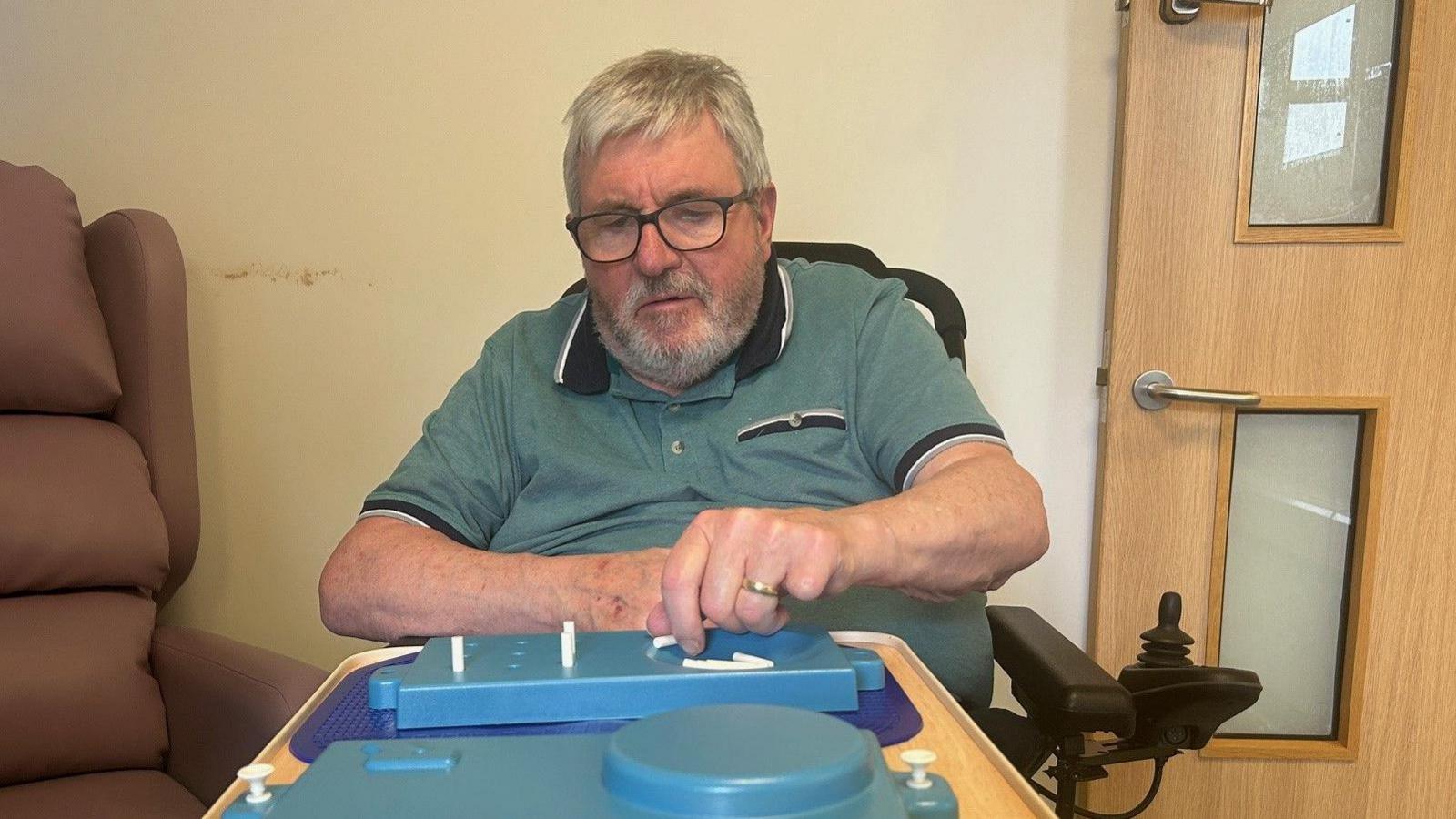
The researchers use tests to see if the drug is working
To work out whether the drug is effective, the researchers use a test of arm and hand function called the nine hole peg test.
They will also be collecting MRI scans to see whether cladribine shows an effect on lesions in the brain.
Consultant neurologist Dr Agne Straukiene is one of the principal investigators on the ChariotMS trial.
She said: "This clinical trial gives promises to many many people.
"It's a game-changing, groundbreaking clinical trial looking at how can we slow down the process of MS and preserve the upper limb function.
You can live without legs but without arms, it takes away your independence and quality of life."
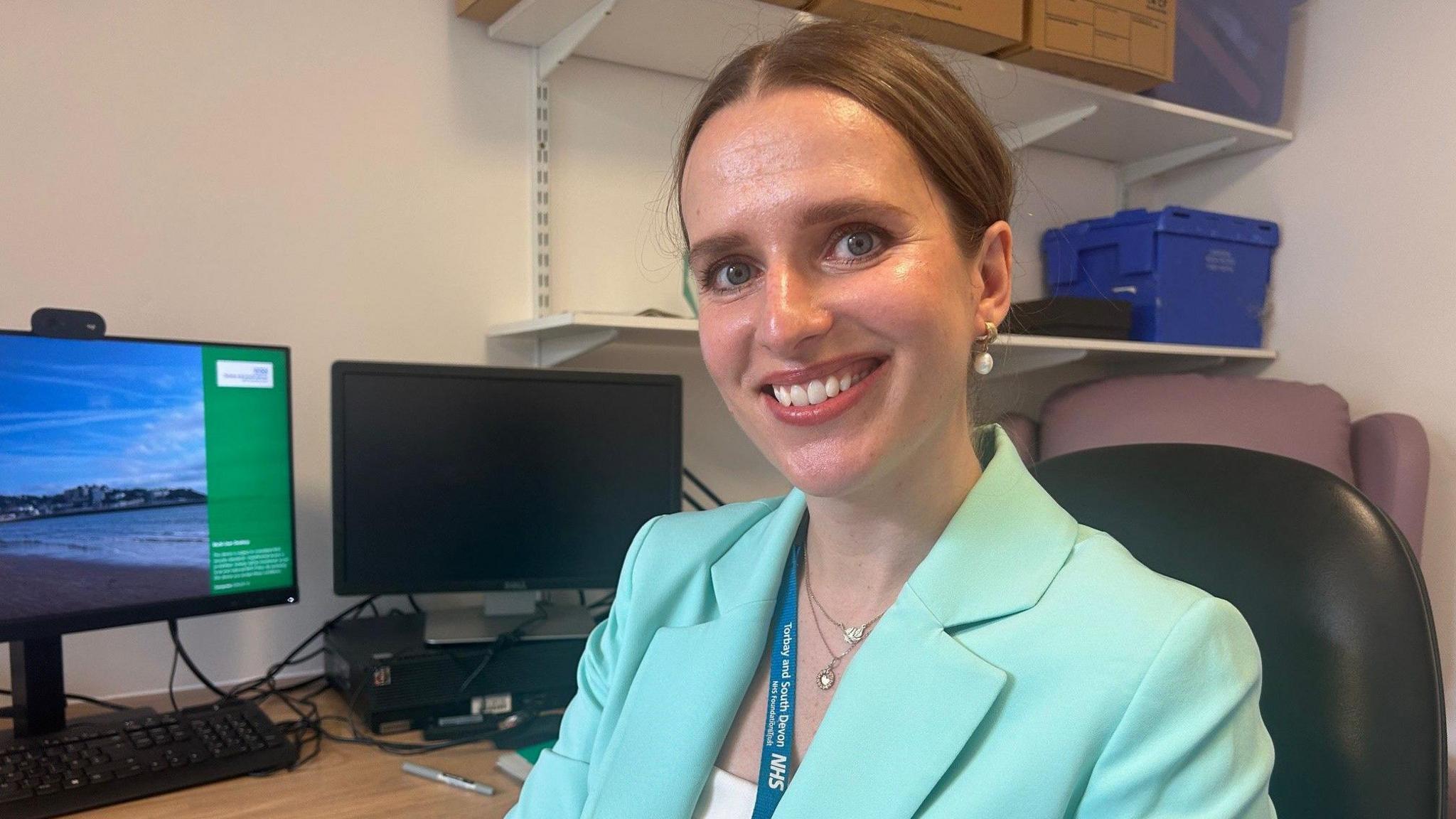
Consultant Neurologist Dr Agne Straukiene is one of the principal investigators on the ChariotMS trial
Mr Kendrick started the trial in December, 2024. He does not know if he is taking the drug cladribine or a placebo.
His wife, Christine Kendrick, 71 said since he had been on the trial she had noticed changes.
"He is moving his arms, maybe not hugely, but there is definitely an improvement.
"He is standing longer and he seems to be much happier. I think that's because he is trying to achieve something - he wants it to work."
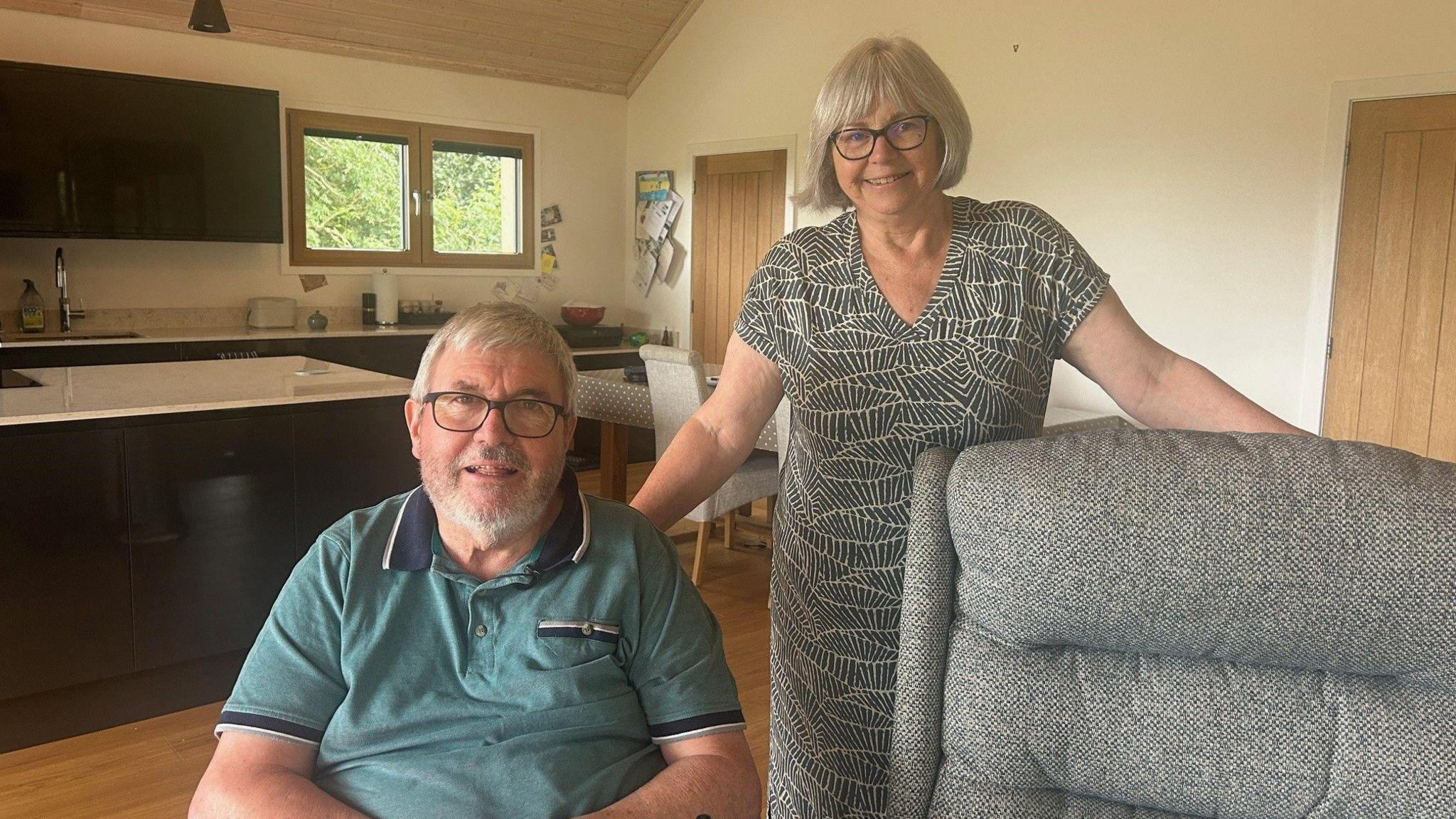
John Kendrick and his wife Christine Kendrick
While doing the initial assessments before the trial began, doctors found Mr Kendrick had a melanoma, a skin cancer, which was quickly removed.
Dr Straukiene said: "We have successfully treated John. It just highlights clinical trials lead to life-saving processes and discoveries."
Recruitment has now ended for the trial at Torbay Hospital and the first results are expected to be published in December 2027.
Mr Kendrick said: "If it doesn't slow down the symptoms for me, I hope it will provide some answers for other people and eventually, one day, someone will come out with a cure for MS."
Related topics
- Published5 September 2023
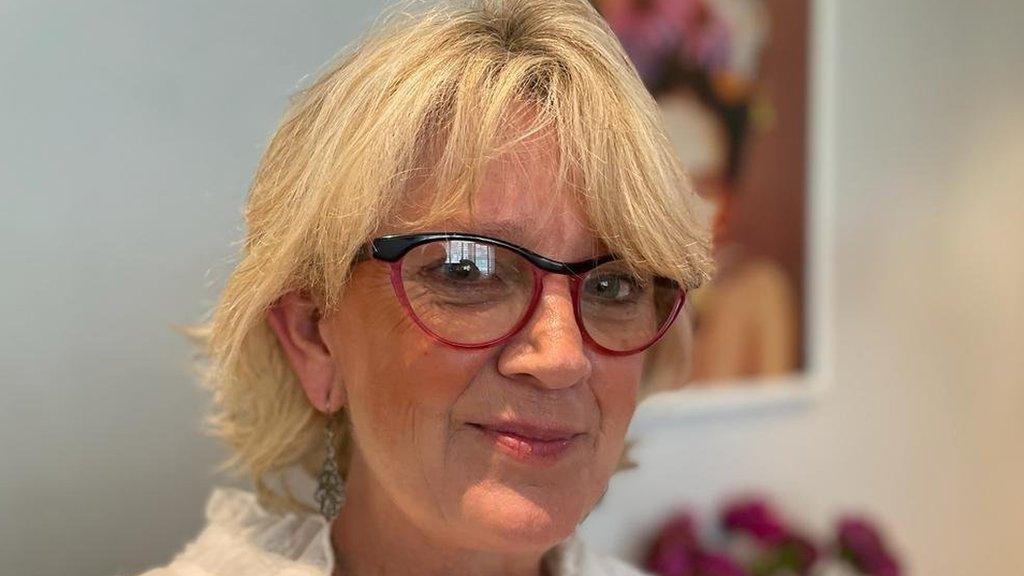
- Published11 September 2024
